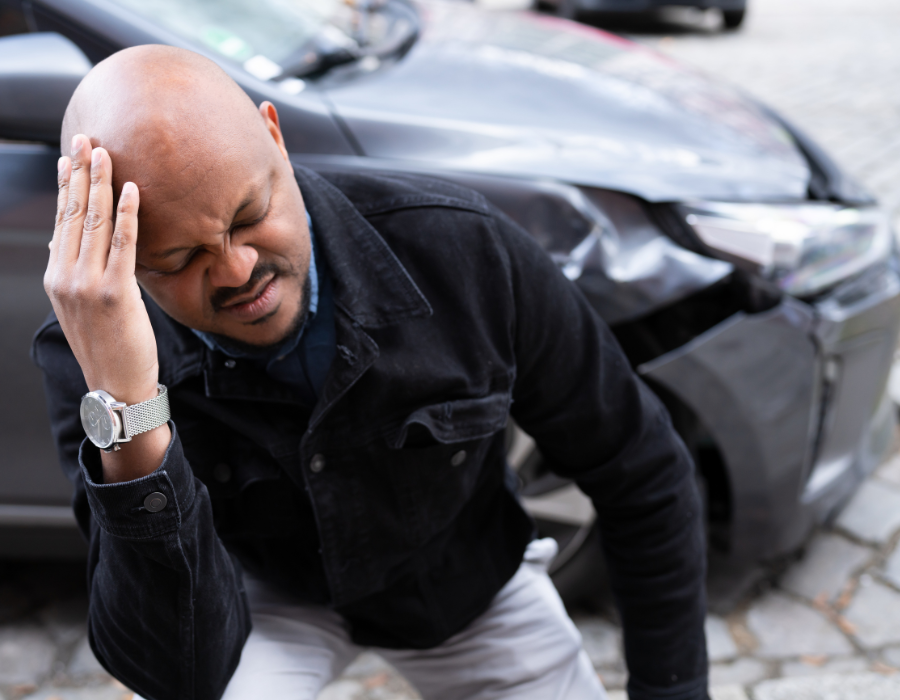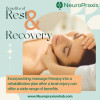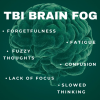A traumatic brain injury is a type of acquired brain injury resulting from sudden trauma to the head which disrupts the normal function of the brain. A traumatic brain injury can have both short-term and long-term effects that can drastically alter an individual’s quality of life – either temporarily or permanently.
Traumatic brain injuries affect many people every year and can have a devastating impact on not only a person’s physical health, but their mental wellbeing and social life as well. The effects of a traumatic brain injury are far-reaching, often encompassing emotional challenges, cognitive deficits, difficulties maintaining relationships, loss of employment or financial woes due to medical bills.
Although one’s understanding of traumatic brain injuries has greatly developed over recent years, it remains one of the most misunderstood injuries in regard to diagnosis and treatment.
A traumatic brain injury is classified in numerous ways including severity, mechanism, location, type and so on. When understanding the severity of the injury, clinicians use the Glasgow Coma Scale. The Glasgow Coma Scale is a clinical scale used to reliably measure a person’s level of consciousness after a brain injury.
This is how it is measured:
Eye Opening Response
- Spontaneous–open with blinking at baseline – 4 points
- To verbal stimuli, command, speech – 3 points
- To pain only (not applied to face) – 2 points
- No response – 1 point
Verbal Response
- Oriented – 5 points
- Confused conversation, but able to answer questions – 4 points
- Inappropriate words – 3 points
- Incomprehensible speech – 2 points
- No response 1 – point
Motor Response
- Obeys commands for movement – 6 points
- Purposeful movement to painful stimulus – 5 points
- Withdraws in response to pain – 4 points
- Flexion in response to pain (decorticate posturing) – 3 points
- Extension response in response to pain (decerebrate posturing) – 2 points
- No response – 1 point
A traumatic brain injury is classified by its severity, using the Glasgow Coma Scale. It can be either mild, moderate or severe.
A mild traumatic brain injury has a GCS of 13-15, and a mortality rate of 0.1 percent. A Mild traumatic brain injury is accompanied with symptoms such as a brief, if any, loss of consciousness, vomiting, dizziness, lethargy and memory loss.
A moderate traumatic brain injury has a GCS of 9-12 and a mortality rate of 10 percent. A moderate TBI is accompanied with symptoms such as unconsciousness up to 24 hours, signs of brain trauma, contusions or bleeding, and signs of injury on neuroimaging.
A severe traumatic brain injury has a GCS of less than 9 and a mortality rate of 40 percent. A severe traumatic brain injury is accompanied with symptoms such as unconsciousness exceeding 24 hours (coma), no sleep/wake cycle during loss of consciousness and signs of injury spearing on neuroimaging tests.
According to the Centers for Disease Control and Prevention, there were approximately 223,135 traumatic brain injury related hospitalizations in 2019 and 64,362 traumatic brain injury related deaths in 2020.
Roughly half of traumatic brain injury hospitalizations are from falls, while the most common cause of traumatic brain injury related deaths in the U.S. is firearm-related suicide. Motor vehicle accidents and assaults are other common ways a person may acquire a traumatic brain injury.
Traumatic Brain Injury Recovery and Symptoms
Recovering from a traumatic brain injury is a difficult journey which can look vastly different across individuals and is dependent on the severity of the brain injury. While medical treatment is essential for helping the individual return to pre-injury functioning, it is often a combination of treatments that makes the largest impact.
Therapies like physical, occupational, cognitive, and speech can help restore lost skills while promoting healing. Emotional support from family and friends on this journey can be just as critical as the therapeutic approach chosen.
Working together with medical professionals and loved ones to create an individualized plan is key to achieving successful recovery outcomes.
- Mild traumatic brain injury recovery and symptoms:
A mild traumatic brain injury will be accompanied by multiple symptoms, which are part of the normal healing process. Some symptoms may appear immediately, while others may not appear for hours or days after injury. Symptoms generally will improve over time, but if they do not, or get worse, it is imperative that one speaks with their doctor.
Some symptoms include:
- Headache
- Anxiety or nervousness
- Feeling foggy or groggy
- Difficulty remembering new information
- Sensitivity to noise or light
- Feeling slowed down
- Sleeping more or less than usual
- Feeling tired, no energy
- Problems with long and short-term memory
- Feeing more emotional
- Blurred vision
- Irritability or easily angered
- Trouble concentrating or thinking clearly
- Nausea or vomiting
- Dizziness or balance problems
The first step of recovery is to rest. As symptoms improve, you may be able to return to regular activities. Recovery may take longer for older adults, or those with previous brain injuries.
These steps may help speed up recovery:
- Get plenty of rest
- Avoid activities that can put you at risk for another injury, are physical demanding or require a lot of thinking
- Stay connected to friends and family and talk with them about how you are feeling
- Ask your doctor about medications that are safe to take during recovery to help with symptoms
- Ask your doctor when it is safe to return to work or drive a vehicle
- Limit screen time and loud music before bed, sleep in a dark room, and keep to a fixed sleep and wake schedule
- Avoid alcohol
- Return slowly and gradually to your routine
- Eat healthy foods rich in omega-3 fatty acids and antioxidants
- Drink plenty of water
- Moderate to severe traumatic brain injury recovery and symptoms:
A moderate brain injury and severe brain injury can have lasting physical, cognitive, emotional and behavioral impacts on one person’s life. Depending on the severity of the injury, recovery can require an extensive regimen of surgery, occupational therapy, physical therapy, speech therapy, medications and so on.
The challenge is that everyone’s neurological structure is different and therefore responses to therapies will vary depending on their unique needs. While there are no guarantees of complete recovery, experts agree that a combination of medical, psychological and rehabilitation therapies give survivors the best chance at experiencing a positive outcome.
According to the Centers for Disease Control and Prevention, despite initial hospitalization and inpatient rehabilitation services, about 50% of people with a traumatic brain injury will experience further decline in their daily lives or die within 5 years of their injury. Some of the health consequences of a traumatic brain injury can be prevented or reduced. Attending to these lifelong issues also known as chronic disease management, is crucial for improving the lives of people with a TBI. Those requiring inpatient rehabilitation are among the most severely injured and constitute less than 10% of all persons hospitalized with a traumatic brain injury.
Those with moderate to severe traumatic brain injuries will face various chronic health problems. According to the CDC, among those still alive 5 years after injury:
- 57% are moderately or severely disabled.
- 55% do not have a job (but were employed at the time of their injury)
- 50% return to a hospital at least once
- 33% rely on others for help with everyday activities
- 29% are not satisfied with life
- 29% use illicit drugs or misuse alcohol
- 12% reside in nursing homes or other institutions
Symptoms of a moderate to severe TBI will appear within the first hours to days after injury and may include:
- Loss of consciousness for up to or more than 24 hours (coma)
- Persistent headache or headache that worsens
- Repeated vomiting or nausea
- Convulsions or seizures
- Dilation of one or both pupils of the eyes
- Clear fluids draining from the nose or ears
- Inability to awaken from sleep
- Weakness or numbness in fingers and toes
- Loss of coordination
- Profound confusion
- Agitation, combativeness or other unusual behavior
- Slurred speech
A Moderate to severe TBI is a lifelong condition, and will be accompanied by multiple symptoms after injury which can include:
- Difficulty understanding and thinking clearly
- Trouble communicating and learning skills
- Problems concentrating
- Memory issues
- Weakness in arms and legs
- Coordination and balance issues
- Hearing and vision issues
- Changes in sensory perception, such as touch
- Anger and aggression
- Feeling more emotional than usual
- Anxiety and depression
- Impulse control
- Headache
- Dizziness
- Nausea
- Tiredness
- Mood and personality changes
Those suffering from a significant traumatic brain injury will require rehabilitation to help relearn basic skills such as walking or talking and improve their abilities to perform daily tasks. Patients will begin therapy while still in the hospital, then will continue rehabilitation through an inpatient rehabilitation facility, or an outpatient like a home and community rehabilitation program. They will meet with multiple rehabilitation specialists along their journey.
These can include:
Various doctors and nurses such as physiatrists, neuropsychologists, physical medicine and rehabilitation doctors and traumatic brain injury rehabilitation specialist nurses; occupational therapists, who will help someone learn, relearn, or improve skills to perform their everyday tasks; physical therapists who will help with mobility and movement patterns such as re learning how to walk and balance; speech therapists who will help with improving communication skills; case managers who will oversee ones care and facilitates access to service agencies; recreational therapists who will assist with leisure activities; among others.
Recovering from a traumatic brain injury can be a long and arduous journey that requires patience, dedication and a healthy lifestyle.
Those who have experienced a TBI should make sleep a priority as sleep is the body’s natural way of healing. They should eat a healthy diet full of fresh fruits and vegetables rich in antioxidants, and foods rich in omega 3’s, while avoiding alcohol, caffeine, sugars, salty foods and in general, inflammatory foods. It is also recommended to engage in physical activity after clearing it with the doctor and social and recreational activities, among other things.
With commitment and willingness to adapt, those recovering from a TBI can resume the necessary steps to regain strength and function of the brain.
Neuropraxis also has resources to help one recover from a traumatic brain injury.
Neuropraxis is a home and community brain injury rehabilitation and spinal cord injury rehabilitation program in California which offers various programs and services to help those overcome the challenges of a traumatic brain injury or spinal cord injury.
Neuropraxis offers physical therapy, occupational therapy, speech therapy, recreational therapy and life skills navigation. Additionally, Neuropraxis programs offer allow for home and community rehabilitation, in-home day treatment, transitional apartment living and in-home supported living.
Neuropraxis aims to provide a comprehensive and customized treatment program through evidence-based practices facilitating the transition of individuals with brain injuries or spinal cord injuries to a life of purpose, social connection and optimism.
For more information, contact Neuropraxis at (888) 266-8921 or hello@neuropraxisrehab.com, or visit www.neuropraxisrehab.com.
Resources:
https://en.wikipedia.org/wiki/Traumatic_brain_injury
https://www.cdc.gov/traumaticbraininjury/get_the_facts.html
https://www.cdc.gov/masstrauma/resources/gcs.pdf
https://www.cdc.gov/traumaticbraininjury/mtbi_guideline.html
https://www.cdc.gov/traumaticbraininjury/moderate-severe/potential-effects.html
https://www.mayoclinic.org/diseases-conditions/traumatic-brain-injury/symptoms-causes/syc-20378557



